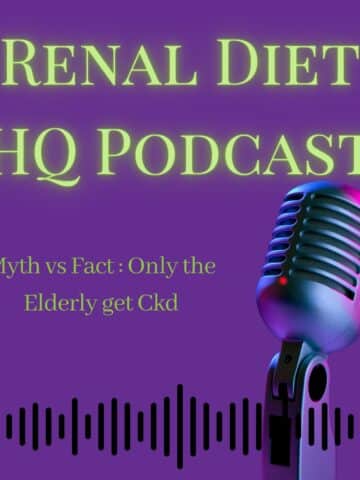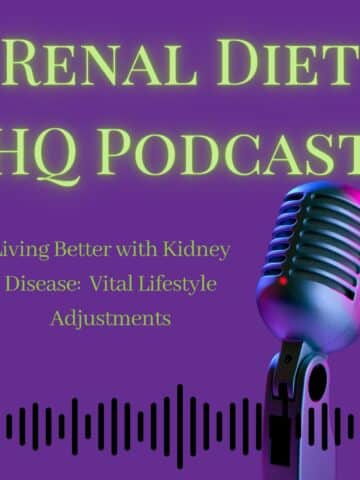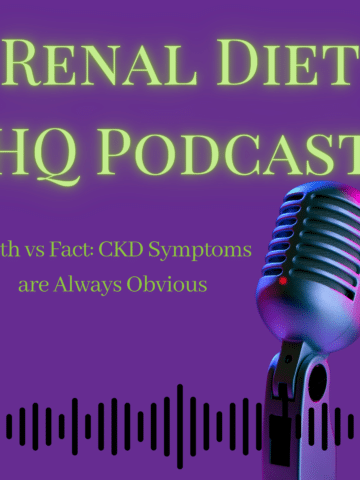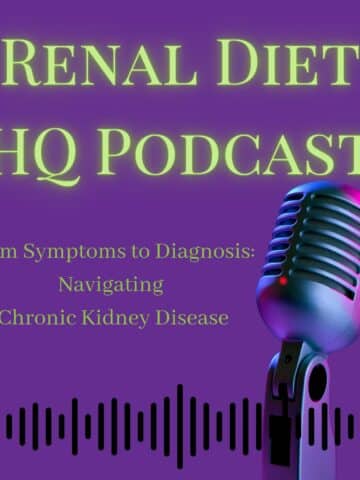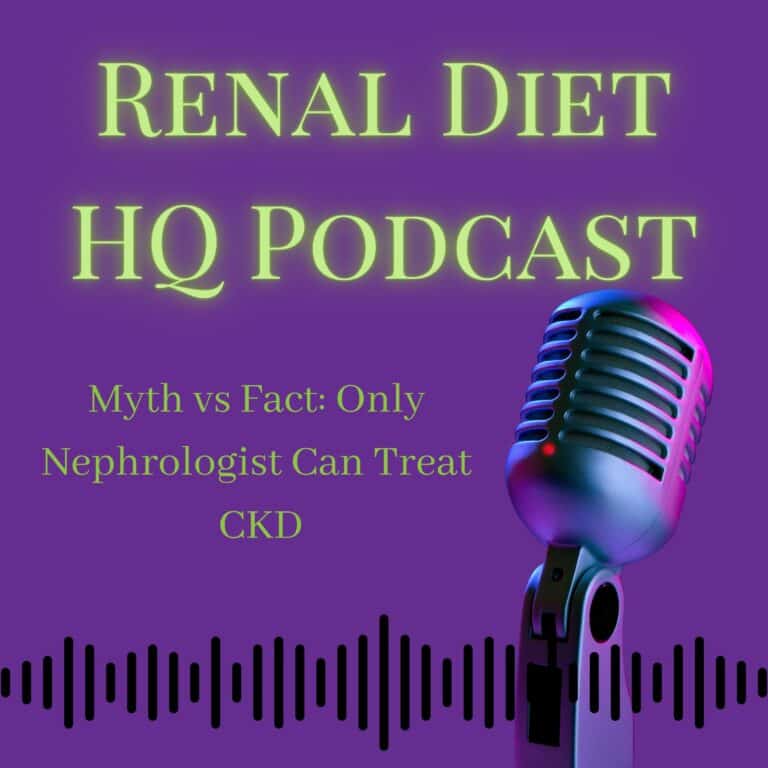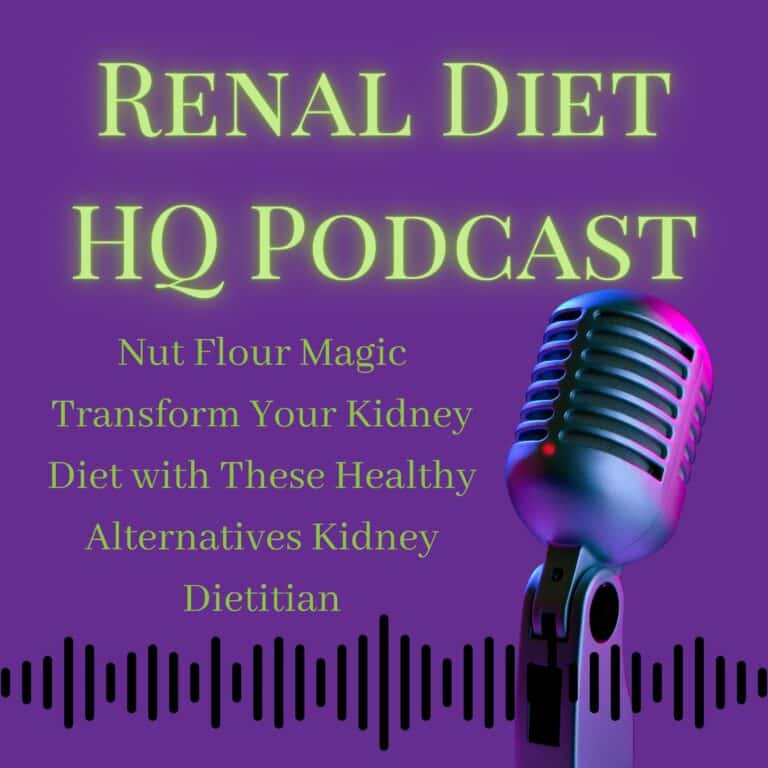RDHQ Podcast 91: What if it works? My thoughts on your future.
Podcast: Play in new window | Download
Hi! This is Mathea Ford, the creator of the Understanding Your Kidney Test Results course and today I want to talk about some of the things you might be struggling with my thoughts are I hear from a lot of people that they're overwhelmed about being having chronic kidney disease or in stage renal disease and on top of that they really don't understand what their doctor means when they're talking about their labs so they might tell me "I'm an eGFR of 46 but they don't know what that means and they don't even know what questions to ask so they just kind of let their doctor explain and then take it in and go back home and then what happens?
You experience frustration, you're spending a lot of time looking for answers trying to understand what those labs means so you have the normal range on your paper you know you look at your lab results and it says phosphorus or potassium is 3.5 to 5 that's the normal range but maybe you don't know what to do to make sure that it stays in the normal range and you don't know what to do if it goes out of the normal range and maybe you don't want to wait until your doctor tells you "Hey! You're high on your potassium this is what you need to do!" You'd rather do some preventive things. So, you get anxiety when you're thinking about getting your labs drawn because you don't know what to do to help it or make it better and you're even maybe a little anxious because you don't want to go on dialysis, you don't want to advance your kidney disease or if you're on dialysis you want to do everything you can to make it the best possible.
Then you look online, you bring home your lab, you look online, you look around you don't find anything that tells you more than like normal ranges or maybe you're not 100% sure about the source of the information if it does tell you what else to do like drink green smoothies. You're wondering how do they know that. So, you really don't know what to do next. That's the big thing like even if you understood "Okay, I'm in the normal range. I'm doing
good. Done this for a while. I'm in the normal range." You don't understand what that means or had to interpret it. So, you really don't know what to do next if you think that it's at all possible to change it like you're like "okay, I don't want to be on stage ... I don't want to advance my stage of kidney disease." You call your doctor "what do I
do?"
You might get a sheet of paper, you might get a callback, you get a list of foods not to eat and that doesn't tell you why and it's hard to go outside of that list of restrictions and if you listen to me much and you know what I say, I don't like restrictions, I like to think about what you can do, what you can have, what you can eat not necessarily like "don't eat all these things" because then that's all you think about and you don't ever get to where what you can do.
If you have a goal of you know not advancing your kidney disease, making the changes you need to make, well, let's talk for a minute about what it could be like if you did understand what your lab results were. What types of things affect your lab results and then you could eventually go back to your doctor and improve your health? What if you were to able to look at your lab results even when they just handed to them to you right there in the doctor's office and understand and ask targeted and specific questions like related to your medications or foods you eat because you know that's what affects your labs.
You're not going to diagnose yourself, you're not going to change anything without asking your doctor but you're going to go in and ask your doctor he's or she is going to be sitting there across from you. You're going to know you got your CBC and all those hemoglobin numbers and you know they drew those labs and then you go into the office and you're like "Okay, this is the hemoglobin is at the bottom into the range what can I do to help that?" Then your doctor can give you the answers you want and help and you would participate in your health care because you understood how does this medication affect this lab? How does this medication affect my blood pressure? Those types of things.
Why am I taking this medication? You would understand that some of those medications can interact and change your lab values cause you should retain more potassium or lose more potassium. So, you would understand what change. You would be able to get those answers from your physician and most of all if you understood what your kidney disease is how it's progressing and what labs tell you if it's progressing faster or slower instead of just looking at the eGFR, you could do know what to do next to change most of what's going on with you and know how it's progressing. You might be concerned, you might be scared, you might have anxiety about dialysis or kidney failure getting worse and what if you knew what to change to slow it down or if you needed to change anything to slow down. Maybe, if you're of a certain age and your eGFR is a certain number that's just normal but you get worried and concerned but you couldn't have a few other tests and understand that "Hey! This is normal. I'm doing okay. It's not progressing. I need to eat a healthier diet but I don't necessarily need to worry about it so much."
See this yourself in that situation where you go into the doctor's office you had your lab drawn a couple days ago and they hand you the lab test results and you know what you're looking at and you know your history and whether that number is improved or not so you have your documentation, you understand what it means, you can ask specifically your doctor "why did this increase? What medications affect this lab?" And you can change or understand how you're taking your medications or what you're eating and what might need to change. You put
yourself in that situation where you're empowered to ask the right questions and be an advocate for your healthcare and that's what I want for you.
So, I'm creating a course called Understanding Your Kidney Test Results and it's about more than labs but for the most part, it's about knowing what each of your labs means and then the other test that you might get done while you have kidney disease. It's about understanding those and even some for diabetes and heart disease so you know that when you get your lab test results you can look it up in this course see what it means and know it's you know these are the next things to do to keep it in line or these are the things to do to bring it back down instead of randomly making changes or just making blanket changes or looking at list of restrictions you can understand deeper than that level. You can see how it's affected and whether you're confident, how you can do something what's next and that depends on this course will teach you about how to advocate for yourself and how to improve your lab results.
I want you to head on over if you're interested in learning more you go over to renaldietHQ.com/waitlist-for-uktr
Head on over there, grab that there's a little information about some of the kidney test results stuff and you can learn more.


